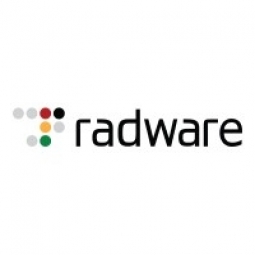Large wholesale bank in New England provides members with continuous,secure access for online e-commerce applications with Radware’s LinkProof solutions.

Customer Company Size
Large Corporate
Region
- America
Country
- United States
Product
- Radware’s LinkProof
- Radware’s Application Switch 2
- Radware’s Application Front-End (AFE)
Tech Stack
- HP OpenView management tool
- Oracle
Implementation Scale
- Enterprise-wide Deployment
Impact Metrics
- Cost Savings
- Productivity Improvements
- Customer Satisfaction
Technology Category
- Networks & Connectivity - Network Management & Analysis Software
Applicable Industries
- Finance & Insurance
Applicable Functions
- Business Operation
Use Cases
- Cybersecurity
Services
- System Integration
About The Customer
The largest wholesale bank in New England for housing finance, cooperatively owned by more than 460 New England financial institutions, provides access to wholesale credit for its member banks and other qualified borrowers. The Bank supports the residential mortgage and community development lending activities of its member financial institutions. Use of the Bank’s products and services help its members operate profitably and offers their communities a wide range of financial services.
The Challenge
The largest wholesale bank in New England began offering financial services via the Internet and provided additional critical business applications for its members, processing millions of dollars per week. Its goal was to have near 100% uptime for these critical e-commerce applications and to provide fast, consistent Internet access. The Bank’s network and Internet access had to provide its members with the appropriate security to protect crucial data and information that was being processed through its web site. The Bank was also planning to expand its member base and would have to plan its network and Internet availability to support this growth. It wanted to implement Internet load balancing between the primary Boston site and its Disaster Recovery (DR) site to enhance its e-commerce performance and reliability, as well as add an automatic failover to the DR site in the event that its Boston site was unavailable.
The Solution
The Bank has two Internet access points from two different Internet Service Providers (ISPs): a multiple T1 connection from AT&T and a 100Mbps connection from Cogent. It also has an additional T1 connection from AT&T which is dedicated to its Disaster Recover site. The primary site and the DR site are connected to each other by a T3 lease line (Clear Channel.) These links are load balanced for optimal Internet connection at all times. The Bank turned to Select, a leading provider of end-to-end IT infrastructure solutions in New England, and also a value-added reseller that assists and supports the implementation of Radware products on corporate networks. Select recommended Radware’s LinkProof solution running on Radware’s Application Switch 2 as the only solution that would effectively provide Internet load balancing and high availability.
Operational Impact
Quantitative Benefit

Case Study missing?
Start adding your own!
Register with your work email and create a new case study profile for your business.
Related Case Studies.

Case Study
Real-time In-vehicle Monitoring
The telematic solution provides this vital premium-adjusting information. The solution also helps detect and deter vehicle or trailer theft – as soon as a theft occurs, monitoring personnel can alert the appropriate authorities, providing an exact location.“With more and more insurance companies and major fleet operators interested in monitoring driver behaviour on the grounds of road safety, efficient logistics and costs, the market for this type of device and associated e-business services is growing rapidly within Italy and the rest of Europe,” says Franco.“The insurance companies are especially interested in the pay-per-use and pay-as-you-drive applications while other organisations employ the technology for road user charging.”“One million vehicles in Italy currently carry such devices and forecasts indicate that the European market will increase tenfold by 2014.However, for our technology to work effectively, we needed a highly reliable wireless data network to carry the information between the vehicles and monitoring stations.”

Case Study
Safety First with Folksam
The competitiveness of the car insurance market is driving UBI growth as a means for insurance companies to differentiate their customer propositions as well as improving operational efficiency. An insurance model - usage-based insurance ("UBI") - offers possibilities for insurers to do more efficient market segmentation and accurate risk assessment and pricing. Insurers require an IoT solution for the purpose of data collection and performance analysis

Case Study
Smooth Transition to Energy Savings
The building was equipped with four end-of-life Trane water cooled chillers, located in the basement. Johnson Controls installed four York water cooled centrifugal chillers with unit mounted variable speed drives and a total installed cooling capacity of 6,8 MW. Each chiller has a capacity of 1,6 MW (variable to 1.9MW depending upon condenser water temperatures). Johnson Controls needed to design the equipment in such way that it would fit the dimensional constraints of the existing plant area and plant access route but also the specific performance requirements of the client. Morgan Stanley required the chiller plant to match the building load profile, turn down to match the low load requirement when needed and provide an improvement in the Energy Efficiency Ratio across the entire operating range. Other requirements were a reduction in the chiller noise level to improve the working environment in the plant room and a wide operating envelope coupled with intelligent controls to allow possible variation in both flow rate and temperature. The latter was needed to leverage increased capacity from a reduced number of machines during the different installation phases and allow future enhancement to a variable primary flow system.

Case Study
Automated Pallet Labeling Solution for SPR Packaging
SPR Packaging, an American supplier of packaging solutions, was in search of an automated pallet labeling solution that could meet their immediate and future needs. They aimed to equip their lines with automatic printer applicators, but also required a solution that could interface with their accounting software. The challenge was to find a system that could read a 2D code on pallets at the stretch wrapper, track the pallet, and flag any pallets with unread barcodes for inspection. The pallets could be single or double stacked, and the system needed to be able to differentiate between the two. SPR Packaging sought a system integrator with extensive experience in advanced printing and tracking solutions to provide a complete traceability system.

Case Study
Transforming insurance pricing while improving driver safety
The Internet of Things (IoT) is revolutionizing the car insurance industry on a scale not seen since the introduction of the car itself. For decades, premiums have been calculated using proxy-based risk assessment models and historical data. Today, a growing number of innovative companies such as Quebec-based Industrielle Alliance are moving to usage-based insurance (UBI) models, driven by the advancement of telematics technologies and smart tracking devices.
Case Study
Enhancing Security and Compliance in Remitly's Global Money Transfer Service with Fastly
Remitly, an online remittance service, was faced with the challenge of securing its proprietary global transfer network. The company needed a security solution that could meet PCI requirements and protect customers' sensitive transactions through its mobile application. The solution had to be capable of defending against new and emerging attack types without impacting performance. Remitly also had to deal with irregular traffic patterns, such as a sudden spike in account transfers from a small network segment on the Pacific coastline of South America. The company needed to determine in real time whether such traffic indicated an attack or valid requests. A traditional web application firewall (WAF) would not be able to distinguish this traffic, potentially leading to customer frustration if the IP was blacklisted.






